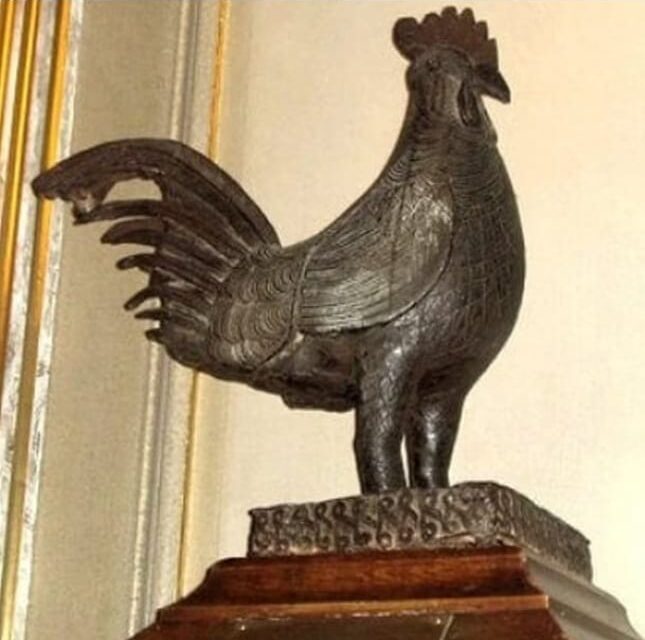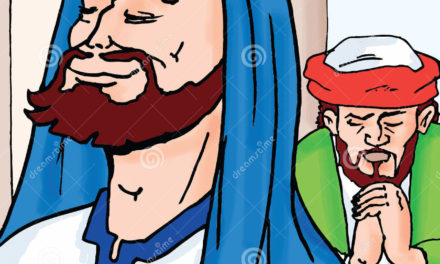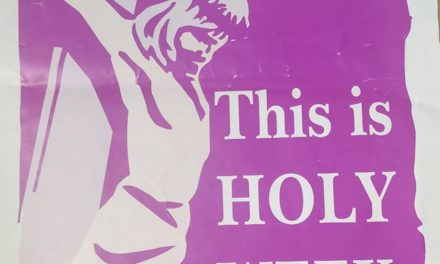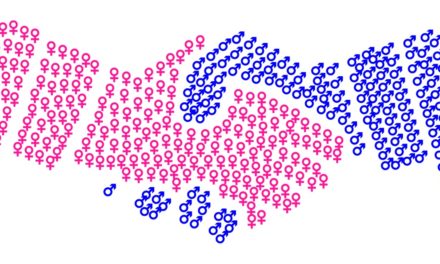Africa was the wellspring for the birth of Atlantic world and the creation of the modern world. African civilization and history has been recorded before the eve of colonial conquest of the continent. The interruptive and destructive natures of the colonial transatlantic slave trade that steal, kill and destroy African civilization remains a tragic memory till date. The pre-colonial Africa was spiritual, civilised, organised, intelligent, hospitable, and hard working. Pre-colonial Africa was home to thousands of vibrant, dynamic cultures populating all parts of the vast continent. The classic Nile valley civilizations of Egypt, Nubia, Kush, and others parts was shaped by the system of pre-colonial society, spirituality, and government. The traditional African food, architecture, and typical structures of towns and villages were shaped by traditional trade and agricultural patterns. To miscast the history and role of pre-colonial Africa is to mislead generations with the story behind the origins of modernity and Christianity. One thing was the main strength of pre-colonial Africans, belief in the Deity. The Supreme God, has always been alive and well in in the African consciousness and remains essential principle around at the centre of the life and beliefs of the Africans.[1]
African objections to the process of the Atlantic slave trade continue to challenge the myths and prejudices underlying most modern analyses, definitions, investigations, and interpretations of African issues – theology, leadership, colour, politics, rights and privileges, and education.[2] The main problem behind the prejudices and error of judgements underlying modern analyses and interpretations of African issues and matters is what Professor Bolaji Idowu, the first Patriarch, Methodist Church Nigeria called ‘the besetting temptation to take appearance for reality without adequate verification.’[3]
Ancient trade routes crisscrossed pre-colonial Africa, ‘many of them pathways for the movement of local and international commerce … African traders linked routes from the west coast to distant communities of the Nile and the Red Sea. Similarly, trade routes traversed north and south, linking the Sahara with the savanna to the south, as well as to the forested regions of the continent.’ Sadly, through the process and evil of the Atlantic slave trade by the colonial warlords, ‘the vast networks of trade routes … were used to capture people and transport African captives far from their homelands.’ Captives were not only captured, Africa civilisations was destroyed and what could not be destroyed were looted and stolen. The truth is that, the making and civilization of the Atlantic world was built upon the destruction, looting and slavery of African. Nigeria was not speared from the colonial conquest and evils of Atlantic slave trade, especially the destruction, looting and stolen of artefacts. Till date, the British Museum illegally ‘holds the largest collection of Benin Bronzes.’[4] The Quai Museum in France is set to return 26 out of over hundreds of Benin Bronzes while Germany is also set to return hundreds of looted artefacts to Nigeria.
History was written yesterday, Wednesday 27th October, 2021 with the return of an artefact looted and stolen by British soldiers to Nigeria. The move is described as “institutional return of its kind.” Yesterday, Jesus College, University of Cambridge handed ‘over a statue of a cockerel — a young rooster — to Nigeria’s National Commission for Museums and Monuments.’[5] The statue, ‘Okokur’ ‘is a Benin Bronze, part of a collection of artefacts stolen from the Kingdom of Benin in modern-day Nigeria by British soldiers in 1897. After being looted, the artefact ‘Okokur’ was given to Jesus College in 1905 by the father of a student.[6] Many of the other Benin Bronzes are on display at the British Museum.’
With the return of the stolen artefact, Cambridge University not only ‘offers new hope for amicable resolution in cultural property ownership disputes,’ but also return of money stolen and looted by Nigerian politician and saved in British banks. Professor Abba Isa Tijani, the Director-General of the National Commission for Museums and Monuments of Nigeria, said. “We hope that it will set a precedent for others around the world who are still doubtful of this new evolving approach whereby nations and institutions agree with source nations on return without rancour.”[7] While thanking Jesus College, Cambridge University for being a trailblazer, Alhaji Lai Mohammed, Nigerian Minister for Information and Culture said, Nigeria is looking ‘forward to a similar return of our artefacts by other institutions that are in possession of them.’ British Banks and especially ‘British Museum … holds the largest collection of Benin Bronzes.
Destiny beckons on the former Chancellor George Osborn, the chairman of the British Museum who succeeded Sir Richard Lambert to act swiftly with the trustees to remove controversial objects from display and return other stolen and looted items to their owners. This action may counter Chancellor Rishi Sunak’s 2021 budget speech and reference to British Museum as a past national achievement with the promise to protect the museums and others with £850m. Stolen and looted artefacts or money are not achievements rather, they are destroying, stagnating and limiting the development of developing nations. It is time to transfer ownership of looted artefacts and money.
African countries are not poor. They have been wronged and displaced. With over 90% of Africa’s cultural heritage believed to be in Europe, all that Africans need is to recover stolen and looted items, money and ‘works pillaged by explorers and coloniser, at a time when numerous European institutions are grappling with the cultural legacy of colonialism.’[8] The action by Jesus College, Cambridge University summons other Western institutions to make amends for the wrongs they have done. According to the President of France, Emmanuel Macron, “All young people need to take possession of their country’s history in order to better build their future. It is an entire programme of cooperation.”
Macron’s call for ‘an entire
programme of cooperation’ counters the coloniality of power, ‘a concept
interrelating the practice and legacies of European colonialism in social
orders and forms of knowledge.’ Coloniality of power ‘identifies
and describes the living legacy of colonialism in contemporary societies in the
form of social discrimination that outlived formal colonialism and became
integrated in succeeding social orders.’ Programme of cooperation to overcome
coloniality of power has potentials to overcome the looting and stolen of
money, artefacts, decline of Christianity, the racial, religious, political and
social hierarchical orders imposed by colonialism. Programme of cooperation to
overcome coloniality of power or even theology suggests a renewal of ‘European-descended
Christianity’ that ‘has historically defined itself by its relation to the
other while paradoxically claiming to represent and speak to humanity in its
totality.’[9]
[1] Idowu, Bolaji E, Olodumare: God in Yoruba Belief (New York;NY: Wazobia, 1994), pp. xii,
[2] Idowu, Olodumare: God in Yoruba Belief (New York;NY: Wazobia, 1994), pp. 2-7
[3] Idowu, Olodumare: God in Yoruba Belief, p. 2
[4] https://abcnews.go.com/International/looted-benin-bronze-statue-returned-nigeria-institutional/story?id=80811939
[5] https://abcnews.go.com/International/looted-benin-bronze-statue-returned-nigeria-institutional/story?id=80811939
[6] https://www.reuters.com/world/uk/cambridge-college-returns-looted-bronze-nigeria-setting-precedent-2021-10-27/
[7] https://abcnews.go.com/International/looted-benin-bronze-statue-returned-nigeria-institutional/story?id=80811939
[8] https://www.reuters.com/world/uk/cambridge-college-returns-looted-bronze-nigeria-setting-precedent-2021-10-27/
[9] https://www.amazon.co.uk/Beyond-Man-Coloniality-Philosophy-











Recent Comments